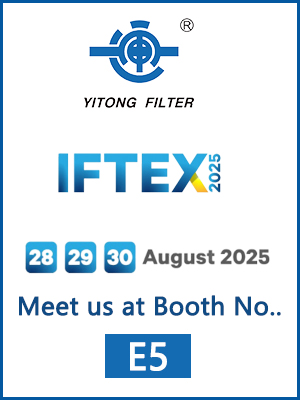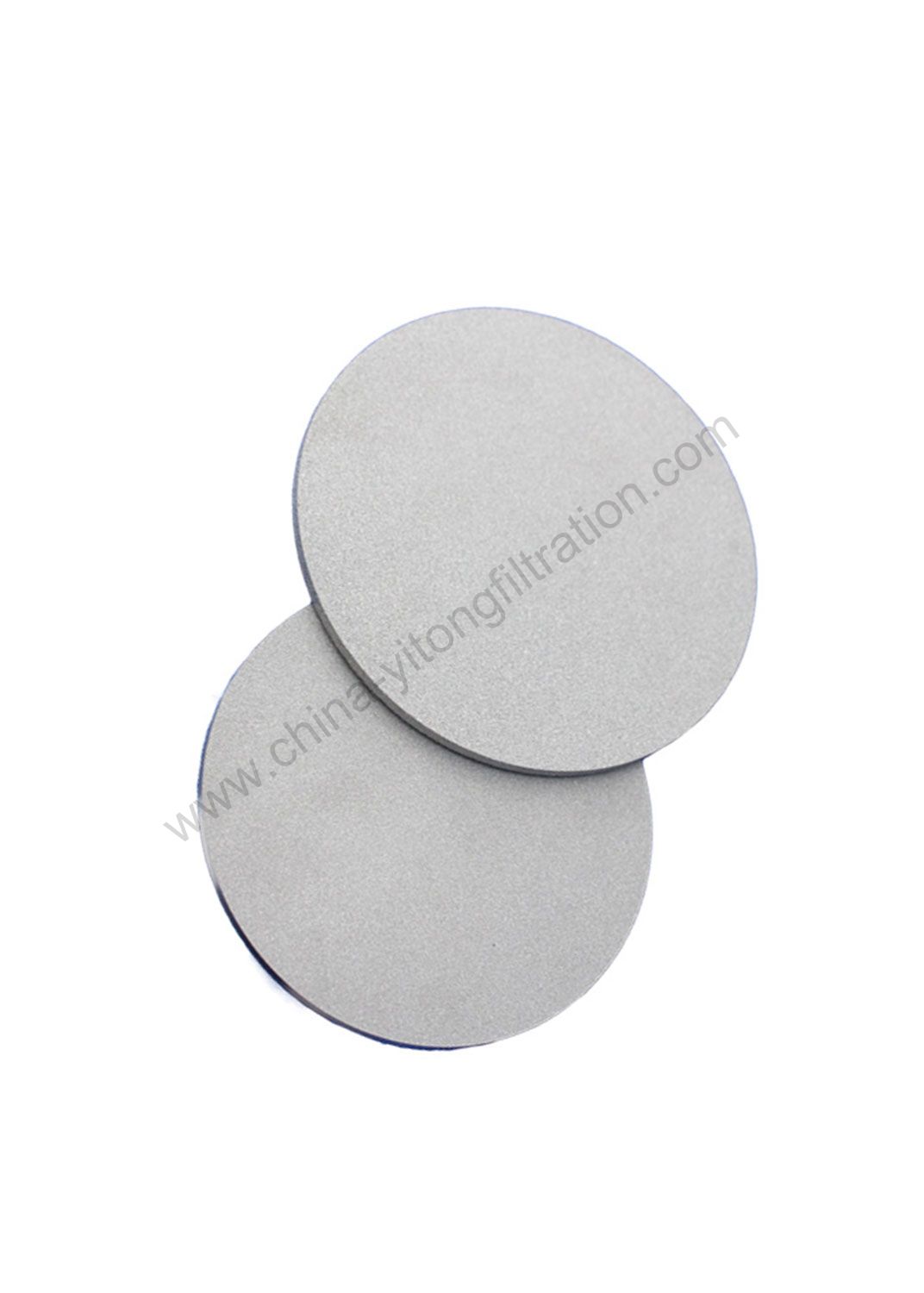
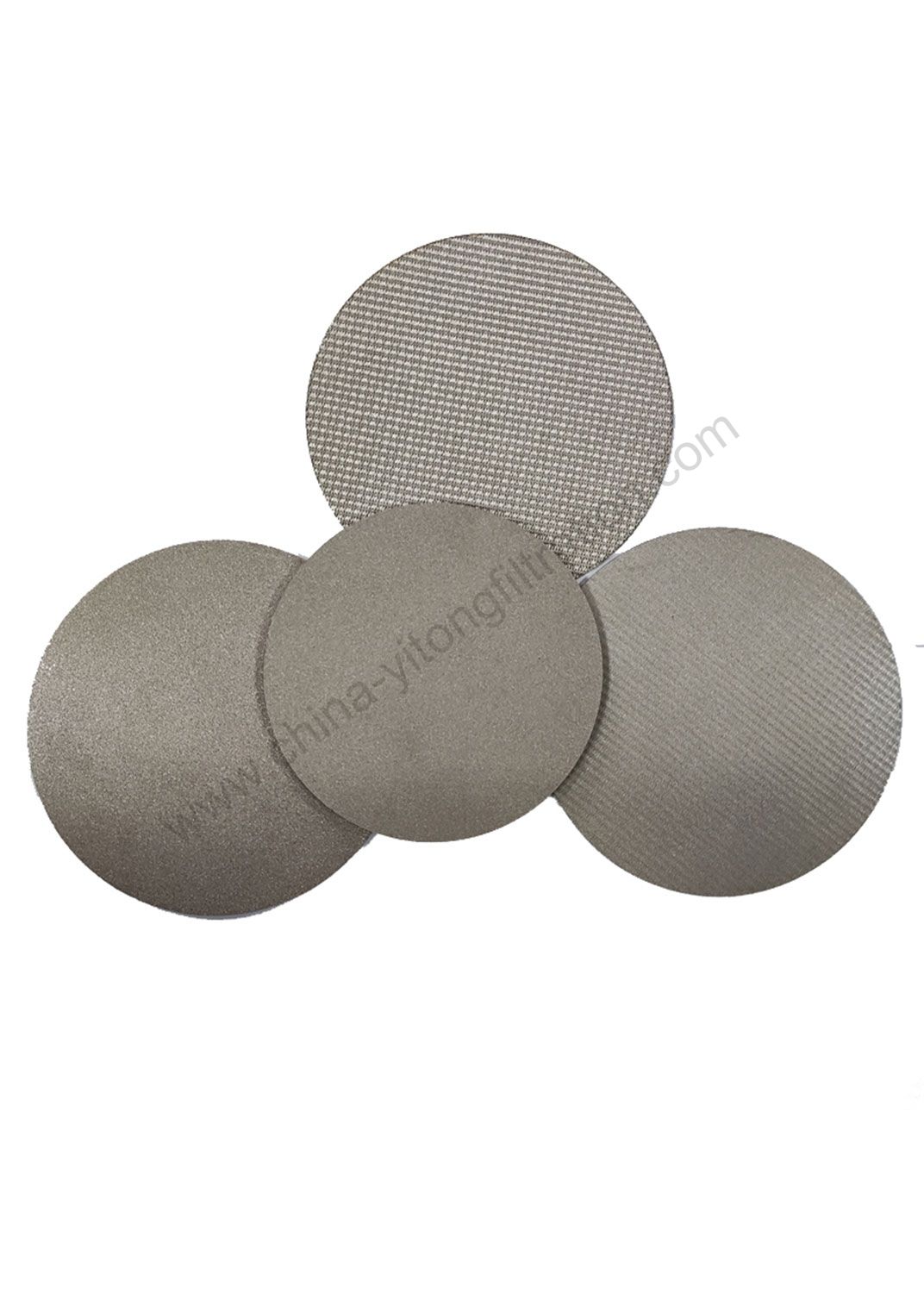
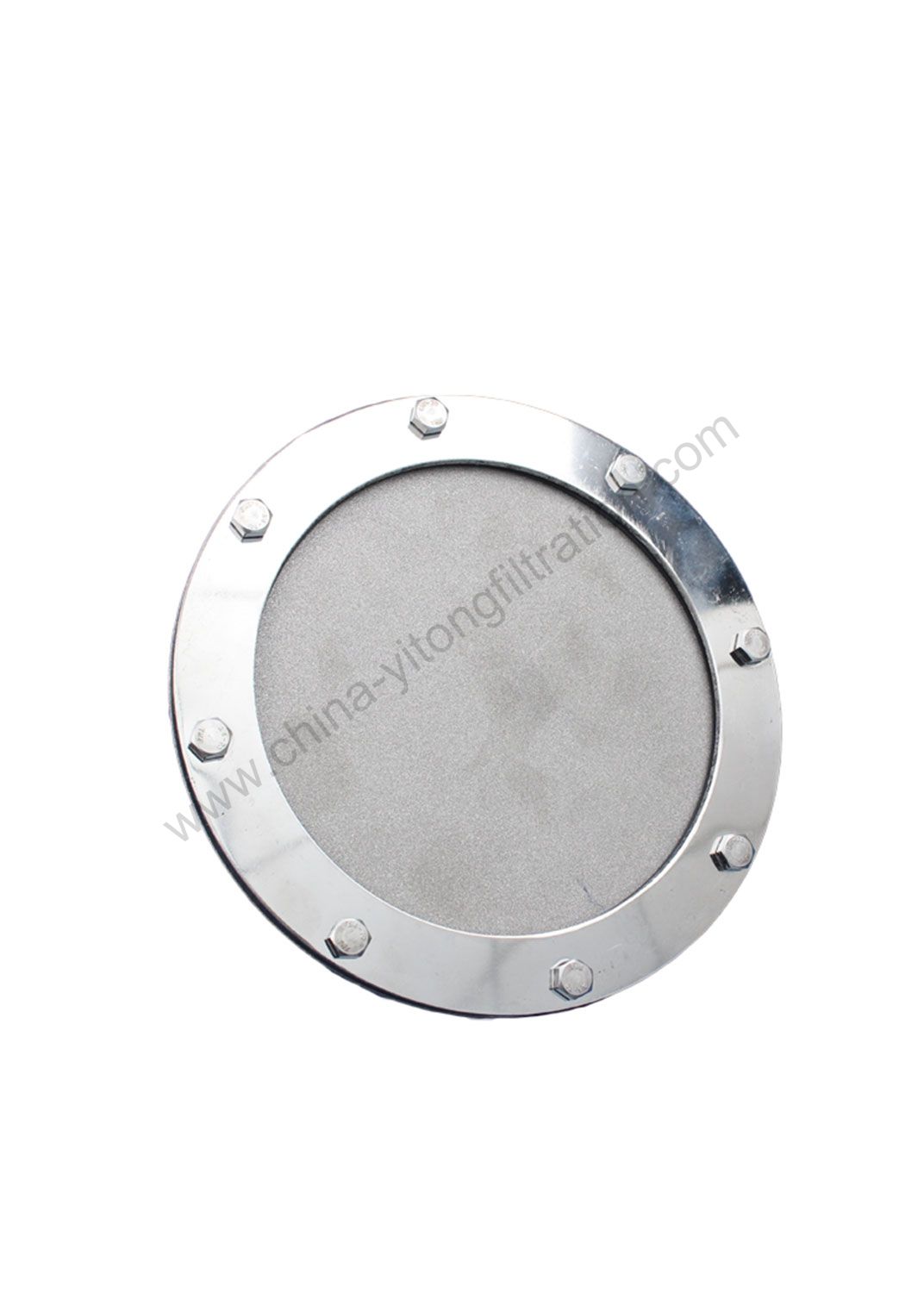
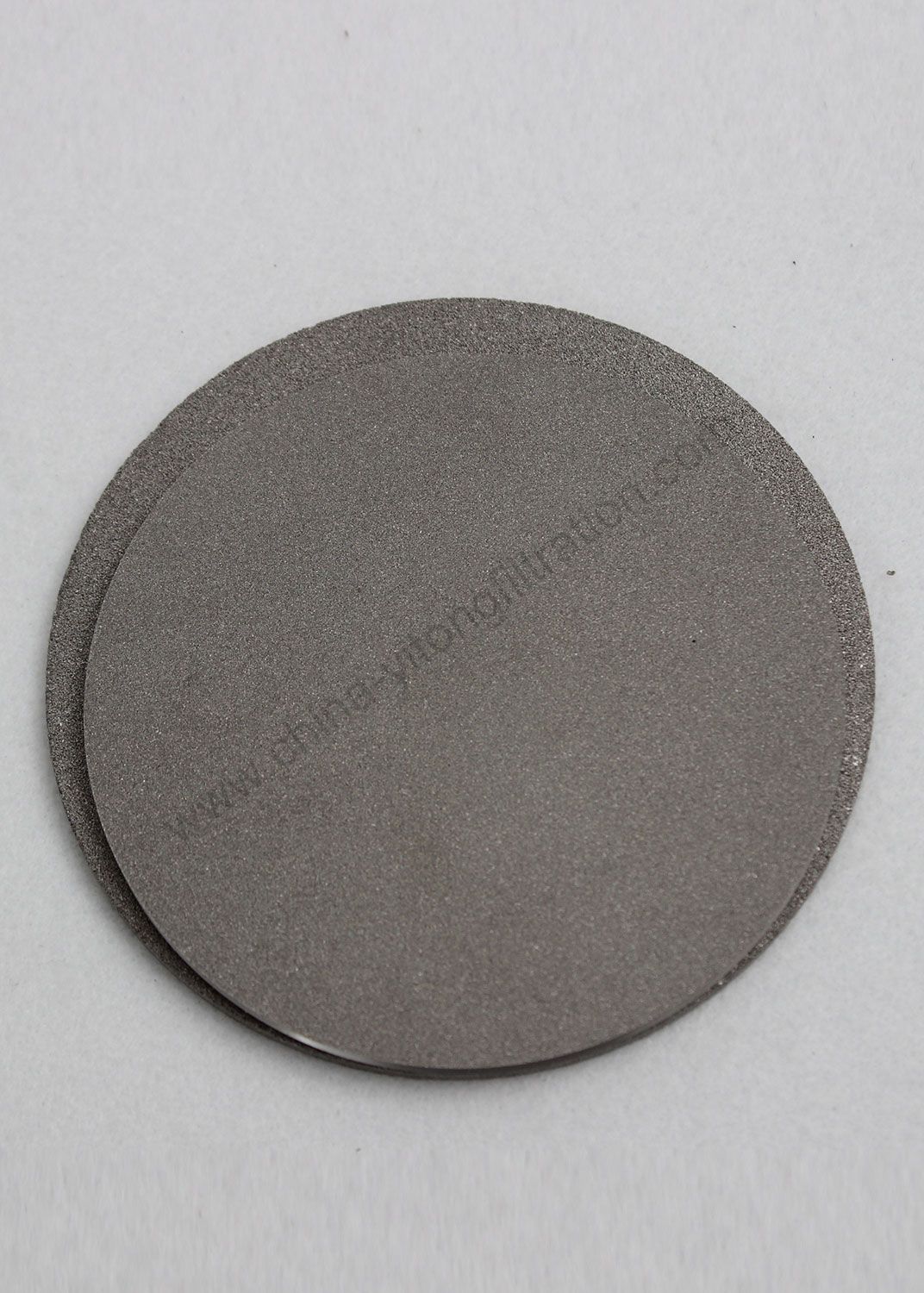
Yitong's Sintered Porous Metal Stainless Steel Discs support customization, we have more than 20 years of experience in the filtration industry.
Sintered porous metal stainless steel discs offer a range of features and advantages due to their unique manufacturing process and material properties:
Porous Structure: The discs are made through a sintering process, which involves compacting metal powder at high temperatures. This results in a porous structure with interconnected voids of controlled sizes and distribution.
High Strength: Despite their porosity, sintered stainless steel discs maintain high mechanical strength, making them suitable for various demanding applications.
Corrosion Resistance: Stainless steel inherently possesses excellent corrosion resistance, which is crucial for applications in harsh environments or those involving exposure to corrosive substances.
Uniform Pore Distribution: The sintering process allows for precise control over the distribution and size of pores, ensuring uniformity throughout the material. This uniformity can be critical for filtration and fluid flow applications.
Customizable Porosity: Manufacturers can tailor the porosity of the discs to meet specific requirements, such as filtration efficiency, flow rate, or particle retention.
Temperature Resistance: Stainless steel discs can withstand high temperatures, making them suitable for use in applications involving heat or thermal cycling.
Chemical Compatibility: They exhibit compatibility with a wide range of chemicals, making them versatile for use in various industrial processes.
Versatility: Sintered stainless steel discs find applications across diverse industries, including filtration, fluidization, aeration, sparging, silencing, and diffusing.
Cleanability and Reusability: The smooth surface and uniform structure of the discs facilitate easy cleaning and sterilization, enabling reuse in applications where hygiene is crucial.
Longevity: Stainless steel's durability and resistance to wear ensure that sintered discs have a long service life, providing cost-effectiveness over time.
These features collectively make sintered porous metal stainless steel discs a preferred choice for applications requiring robust, corrosion-resistant, and customizable porous materials.
Sintered Porous Metal Stainless Steel Discs Applications:
Filtration: Used in various filtration processes to remove particles, contaminants, or impurities from liquids or gases in industries such as pharmaceuticals, food and beverage, and chemical processing.
Fluidization: Employed in fluidized bed reactors and fluidized bed granulation processes in the chemical, petrochemical, and pharmaceutical industries.
Aeration and Sparging: Used for gas-liquid mixing, aeration, and sparging in wastewater treatment, fermentation processes, and chemical reactions.
Silencing: Utilized in mufflers and silencers to reduce noise in pneumatic systems, exhaust systems, and industrial equipment.
Diffusion: Applied in diffusion processes for gas distribution and diffusion bonding in industries like electronics manufacturing and metal joining.
Venting and Breathing: Used as vents or breathers to equalize pressure and prevent moisture ingress in enclosures, such as electronic devices, batteries, and hydraulic systems.
Catalysis: Serve as catalytic supports or substrates in catalytic converters, chemical synthesis, and environmental catalysis applications.
Sintered Bearings: Utilized in self-lubricating bearings for low-friction, high-load applications in automotive, aerospace, and industrial machinery.
Overall, sintered porous metal stainless steel discs offer a combination of durability, customization, and performance, making them indispensable in numerous industrial processes and applications.
Sintered Porous Metal Stainless Steel Discs Specifications
| Material selection | Titanium Stainless steel:316L, 304L, 310S, 321, 904L Hastelloy C22 C276 X Inconel 600 Monel 400 Nickel |
| Filtration Grade | 0.5um 1um 3um 5um 10um 15um 20um 30um 50um 80um 100um |
| Data & Specifications | Diameter: Min. 2mm, Max. 450mm Thickness: Min. 1mm, Max. 20mm |
If you are interested in any of our products, please feel free to contact us, our team will provide you with professional service and perfect quotation!
1. What is the sintering process?
The sintering process involves compacting metal powders at high temperatures, typically below the melting point of the metal. This process fuses the particles together, forming a solid structure with interconnected pores.
2. What are the primary applications of sintered porous metal stainless steel discs?
These discs are commonly used for filtration, fluidization, aeration, silencing, and diffusing in various industries such as automotive, chemical processing, pharmaceuticals, food and beverage, and aerospace.
3. What types of stainless steel are typically used in these discs?
Stainless steel alloys such as 304, 316, and 316L are commonly used due to their excellent corrosion resistance and mechanical properties.
4. What is the porosity range available in these discs?
The porosity can vary based on application requirements, but typical porosity ranges from around 5% to 50%. However, custom porosity levels can be achieved based on specific needs.
5. How is the pore size and distribution controlled in these discs?
The pore size and distribution are controlled during the manufacturing process, primarily through the selection of metal powder particle size, the composition of the powder mixture, and the sintering conditions.
6. Are these discs reusable?
Yes, sintered porous metal stainless steel discs are often reusable. They can be cleaned, sterilized, and reused multiple times, making them a cost-effective solution for many applications.
7. What is the temperature range that these discs can withstand?
The temperature resistance of these discs depends on the specific stainless steel alloy used. Generally, they can withstand temperatures ranging from -200°C to over 1000°C (-328°F to over 1832°F).
8. How do I select the right disc for my application?
Factors to consider include porosity, pore size, material compatibility, temperature resistance, and mechanical strength. Consulting with a supplier or manufacturer can help determine the most suitable disc for your needs.
9. Can these discs be customized?
Yes, sintered porous metal stainless steel discs can be customized in terms of size, shape, porosity, pore size distribution, and surface finish to meet specific application requirements.
10. Are there any limitations or precautions to be aware of when using these discs?
While stainless steel offers excellent corrosion resistance, compatibility with certain chemicals should be verified for specific applications. Additionally, care should be taken to avoid excessive mechanical stress or thermal shock, which could compromise the integrity of the discs.

